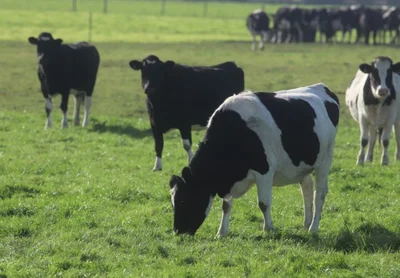Live exports back in the spotlight

A protest against the proposed rollback of the ban on live animal exports will take place around New Zealand on Sunday.
But Mid Canterbury farmers say animal welfare standards are high, and bringing back live exports will be a good things for the rural sector.
The ban on live livestock exports by sea came into effect on April 30 last year. But the National Party, ACT, and NZ First all promised to reverse a ban on live animal exports as part of their election campaigns, putting the issue back on the political agenda.
Lyn Mansel, from End Live Export NZ in Timaru, said the group had a lot of photographic evidence and reports from vets that showed that live exports were cruel.
The pens were very cramped and animals stood in their excrement and couldn't get back up if they fell, she said.
Mansel said there had been a lot of interest in the protest and she was hoping for a good turnout.
The goal is to "protect the ban" for welfare reasons but also to protect New Zealand's future.
"If we send our best breeding stock to China it's going to get to a point where they say we don't need your exports, we've got our own milk powder.
"It's like selling the goose that lays the golden egg" with downstream effects for farmers, freezing workers, and more, she said.
The closest protests will be at noon at the corner of Stafford and Strathallan streets in Timaru and the Bridge or Remembrance in Christchurch.
The new Government has signalled plans to lift the ban and allow trade to resume before the end of 2024 with a new "gold standard" for animal welfare in place.
Local dairy and beef farmers support the reintroduction of live exports of cattle.
Mid Canterbury Federated Farmers dairy chair Nick Geira said an export market for livestock would help support the value of dairy herds.
He said the dairy industry was no longer growing and dairy livestock value had been flat for the last three years.
"An export market would underpin the value for dairy stock."
This was important for young farmers and share milkers who had all their wealth in livestock.
Given the 2020 tragedy of the sinking of the Gulf Livestock 1 in 2020, Geira said animal welfare standards and shipping standards would be under high scrutiny.
"The New Zealand economy relies on exports - we should take every opportunity."
Geira did not agree with activists' claims that it was the equivalent of selling the golden goose.
"It's not the best stock going over."
Stopping live exports from New Zealand did not stop animal welfare issues. If China is not buying animals from New Zealand, they would be buying them from somewhere else, Geira said.
Fed Farmers local meat and wool representative Ross Bowmar said he used to export Angus cattle and had been affected by the ban.
Farmers could diversify their income and "farm better" if they had the option to export.
Cattle that were "slower or late to mature" could be exported overseas and allow farmers to focus on better stock, he said.
National Federated Farmers dairy chair Richard McIntyre said the organisation had pushed for the rollback of the ban and was pleased the Government was following up on campaign commitments.
Live exports brought in about $300-$400 million a year for farmers and was a significant earner - especially when the domestic market and environmental conditions were unfavourable.
Federated Farmers also welcomed stronger welfare standards, he said.
“New Zealand farmers already have high standards for animal welfare on-farm, and we expect the same with exported animals. This is about protecting our international reputation, but it’s also about maintaining our reputation here in our communities.”
By Sharon Davis

